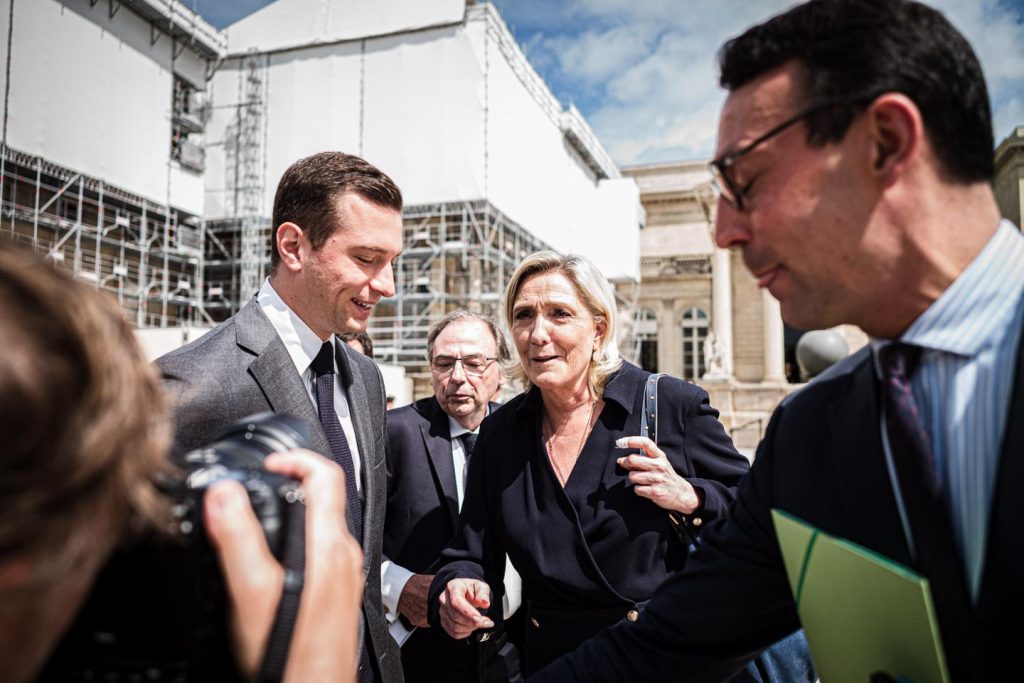The leader of the French far-right party National Rally (RN), Jordan Bardella, and the president of the RN group in the National Assembly, Marine Le Pen, found themselves at the Palais-Bourbon in Paris on July 10, 2024. Following the disappointing results of the legislative elections, the party’s spokespeople were scheduled for a video conference to discuss messaging points, but the meeting was canceled abruptly. Jordan Bardella delivered a brief statement to party supporters, followed by Marine Le Pen, who declared it to be a “delayed victory” rather than a defeat. The RN has maintained a narrative of inexorable progress towards victory for forty years, with Marine Le Pen positioning herself as the champion of this unwavering optimism.
Despite the setback in the elections, the far-right continues to assert that the results were manipulated by other political parties and the media, who allegedly exaggerated the incompetence or racism of many candidates. In September, Jordan Bardella prohibited his parliamentarians from engaging in self-criticism, insisting that introspection was unnecessary. However, some party members are frustrated by the lack of self-reflection within the party apparatus, beyond the resignation of the party’s general director. A senior party figure criticized the failure to analyze past failures, noting that the narrative of victory leaves little room for change. The RN’s victimhood narrative was echoed at a rally in Nice on October 6, with speakers blaming the electoral system for their defeat.
After the elections, the RN did not conduct any internal debriefing sessions to assess the campaign. Marine Le Pen requested a report from the general director, Gilles Pennelle, which confirmed issues with candidate preparation. The lack of a clear strategy for governance, especially in the event of a Macron defeat, was evident. The party had been vocal about its readiness for new elections and to govern, but was caught off guard by Macron’s decision not to dissolve the National Assembly after the European elections. There was a failure to anticipate this outcome, highlighting the need for better planning and strategy within the party leadership.
Calls for a more thorough examination of the election results and a restructuring of the party’s approach have been made by some members, including Jean-Philippe Tanguy and Bruno Bilde, who emphasize the importance of learning from past failures. The lack of a coherent post-election analysis and the absence of a clear plan going forward have raised concerns about the party’s ability to adapt and evolve in a changing political landscape. The reluctance to acknowledge shortcomings and implement changes within the party structure is seen as a hindrance to the RN’s future prospects and electoral success.
In conclusion, the National Rally’s response to its electoral defeat in the legislative elections has been marked by a mix of denial, victimhood, and a reluctance to engage in self-criticism. The party’s leadership, including Marine Le Pen and Jordan Bardella, have sought to portray the results as a temporary setback on the path to eventual victory. However, some party members have called for a more introspective approach, emphasizing the need for a thorough analysis of past failures and a willingness to adapt to changing political realities. The future success of the party may depend on its ability to address these concerns and develop a more strategic and coherent approach to governance and electoral campaigning.















